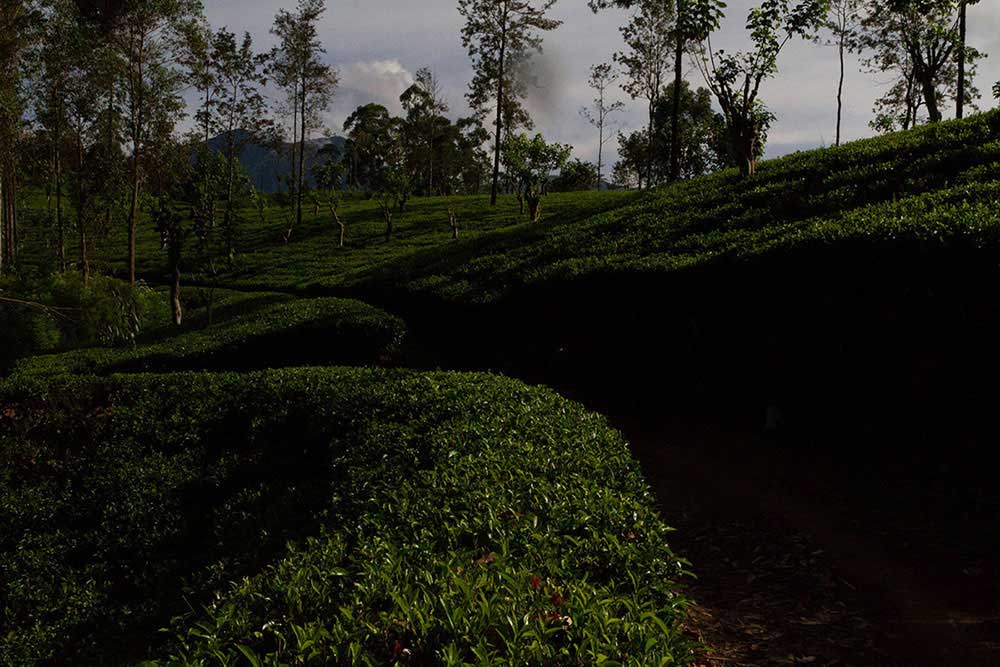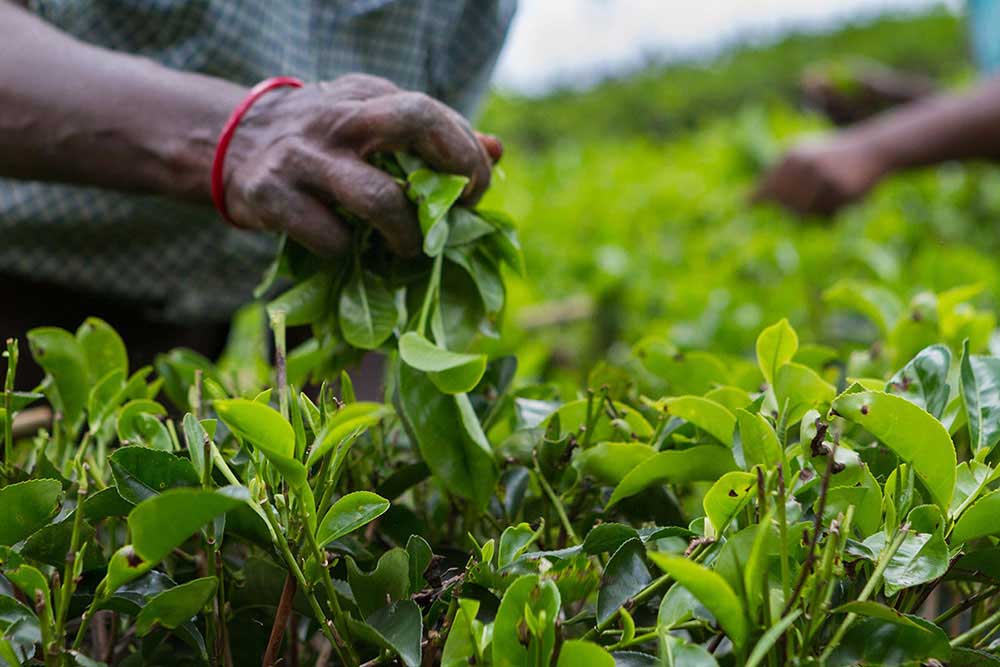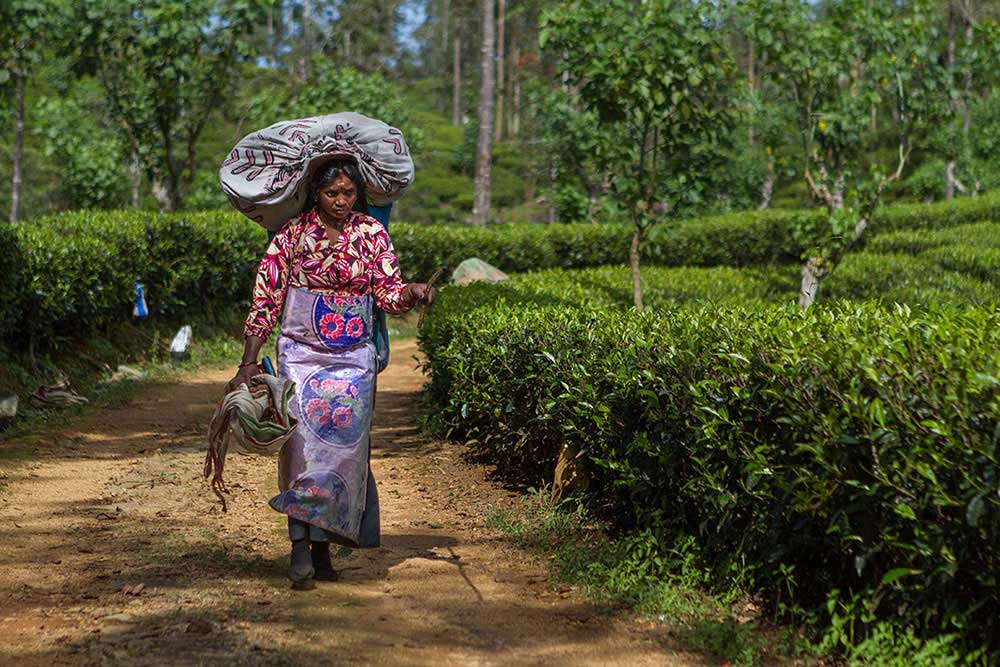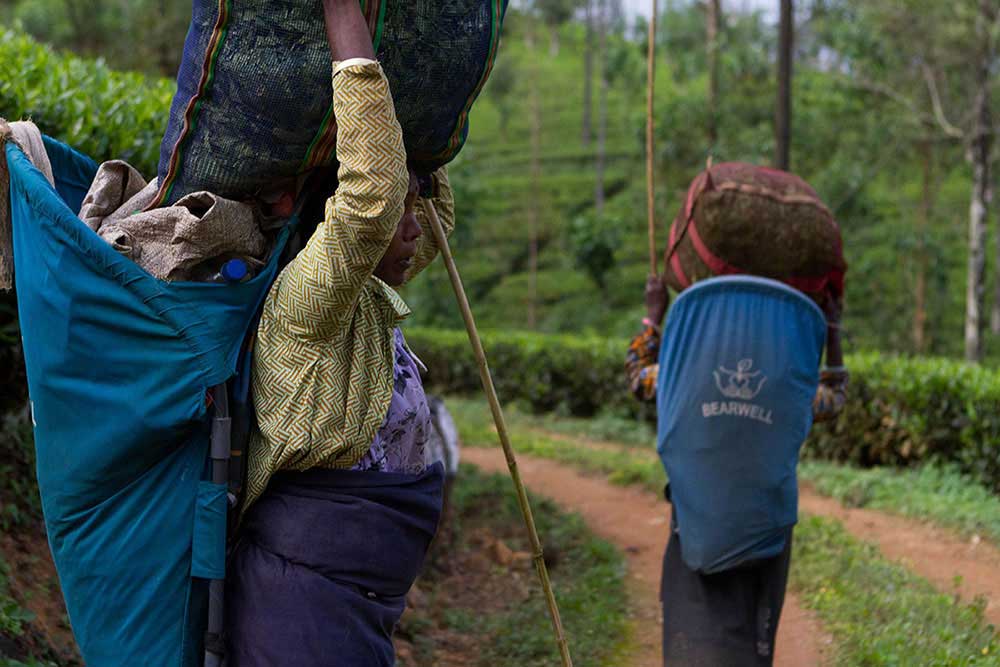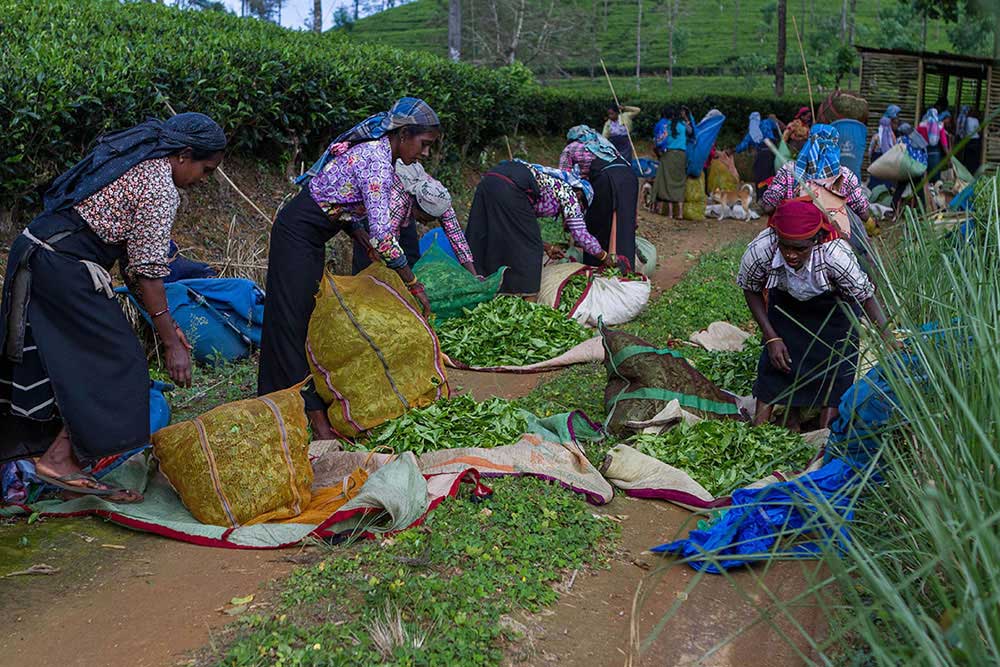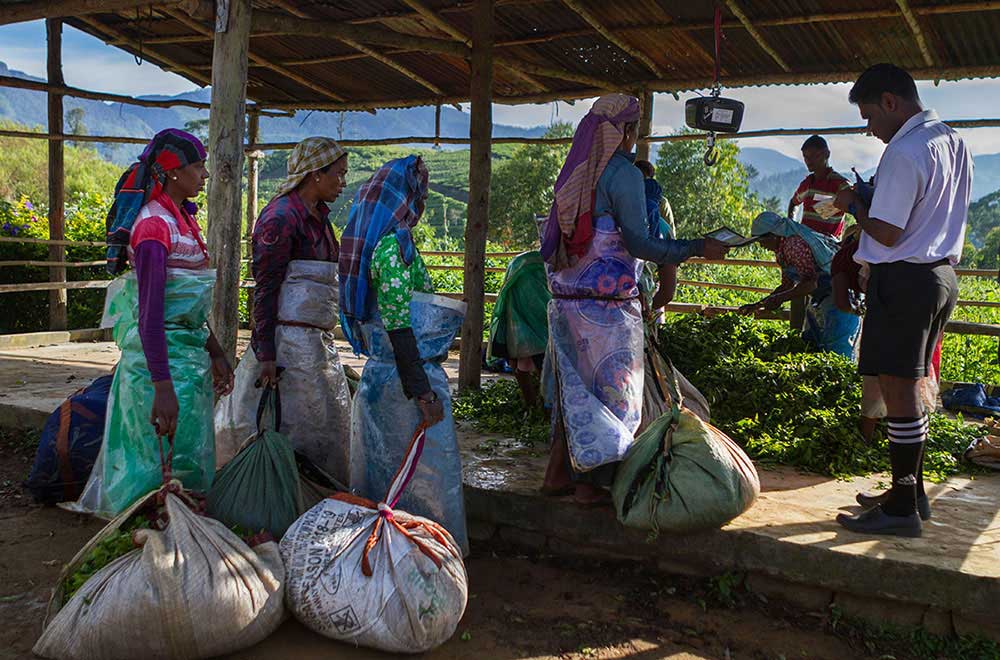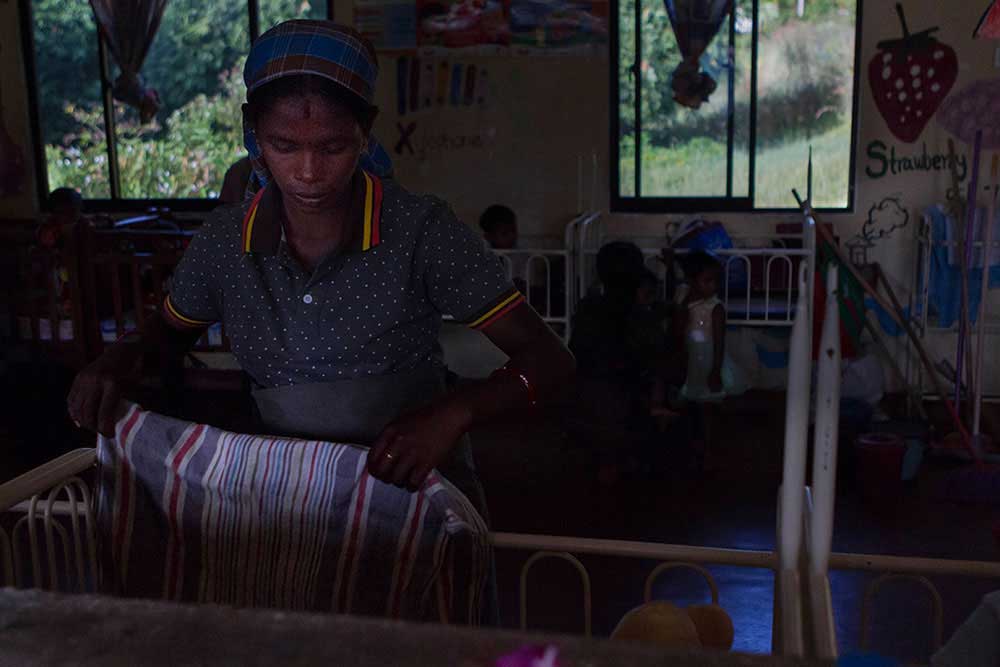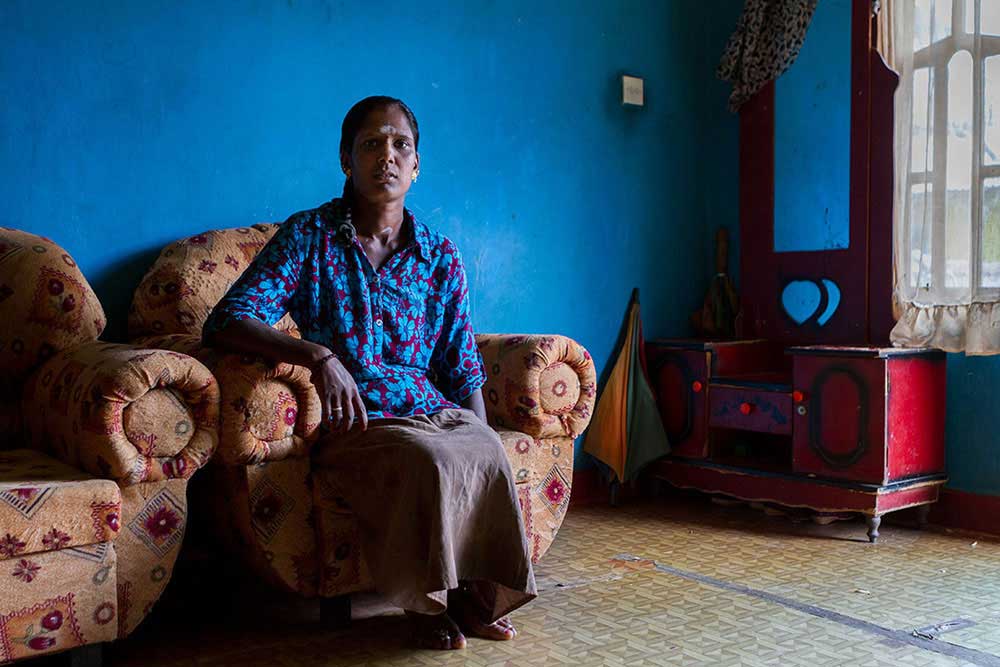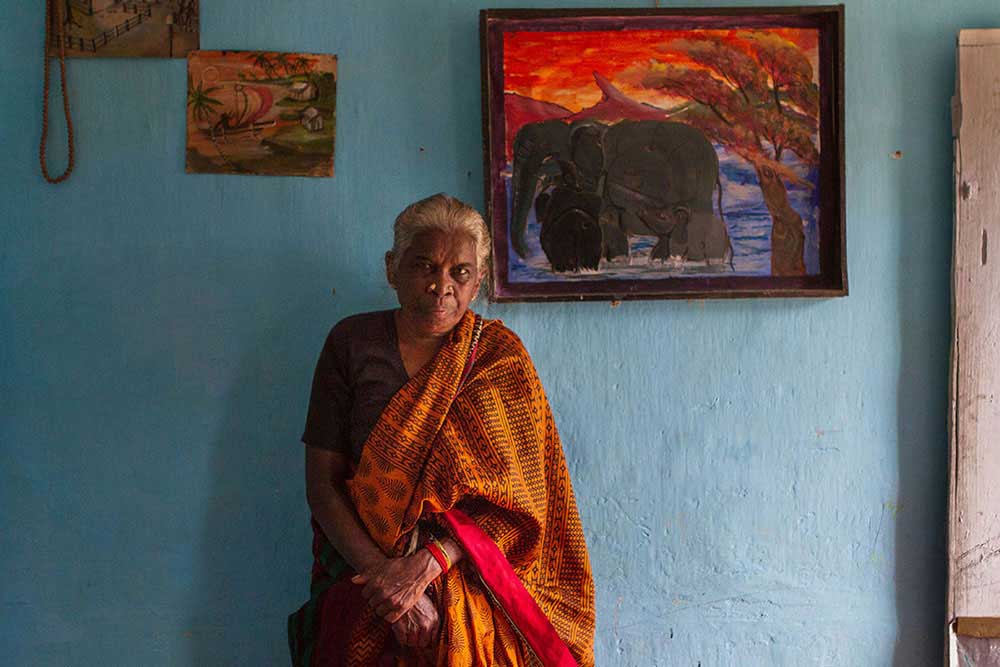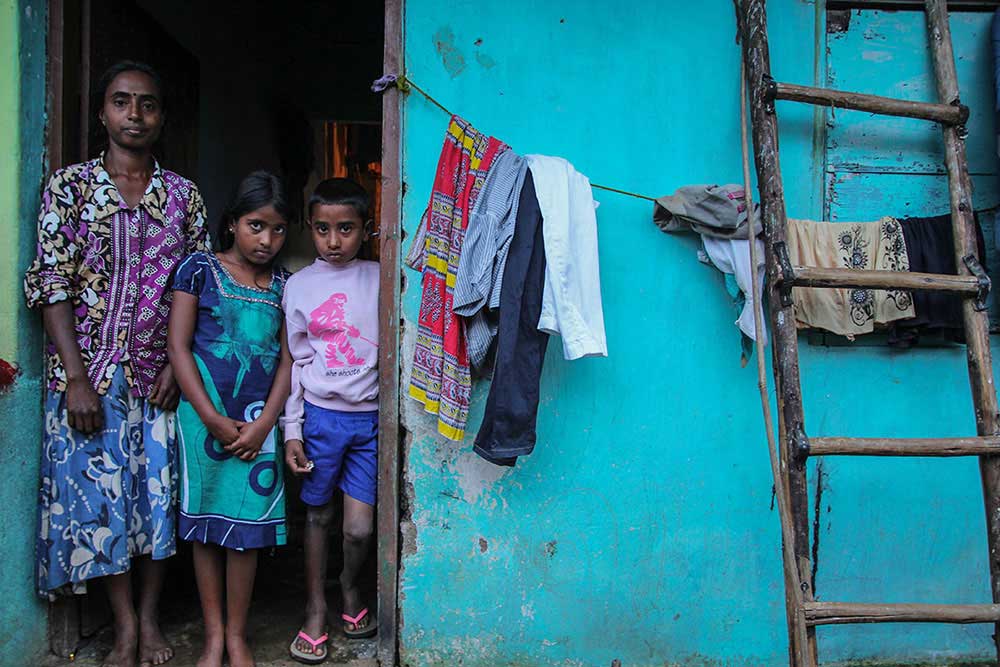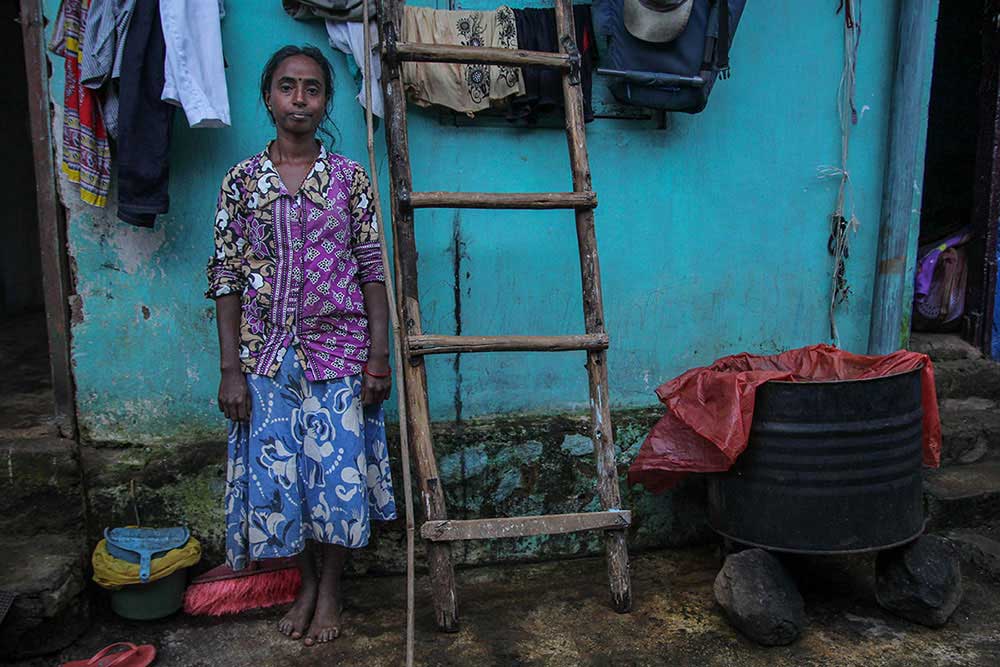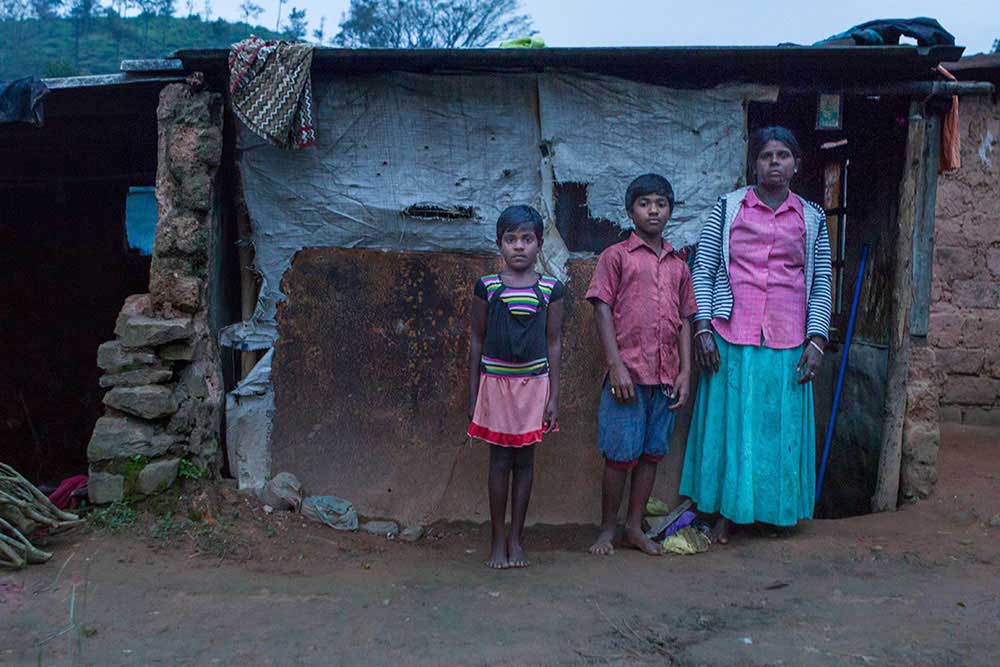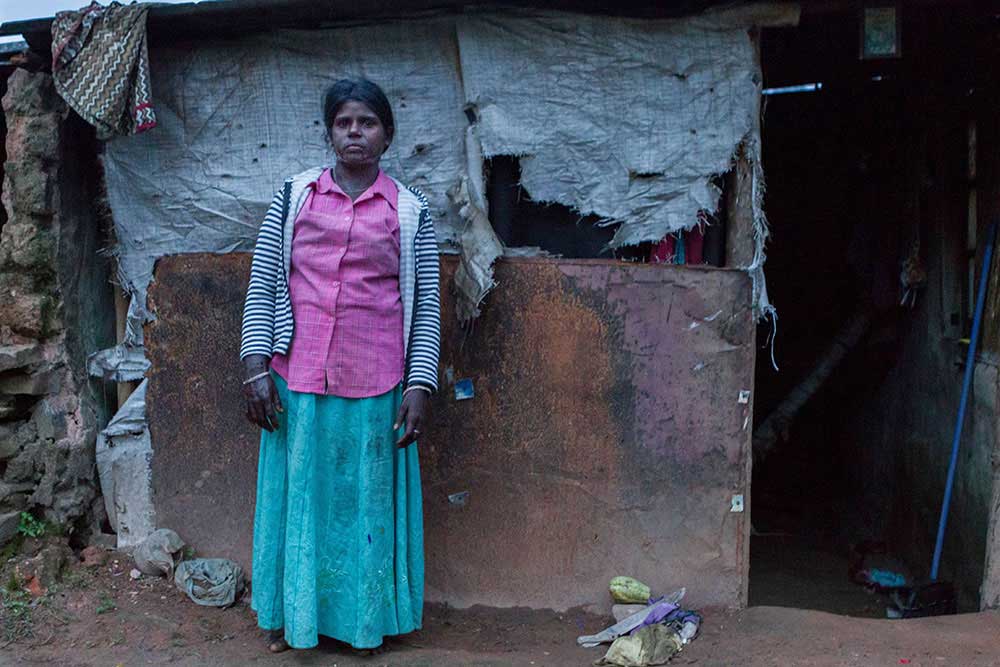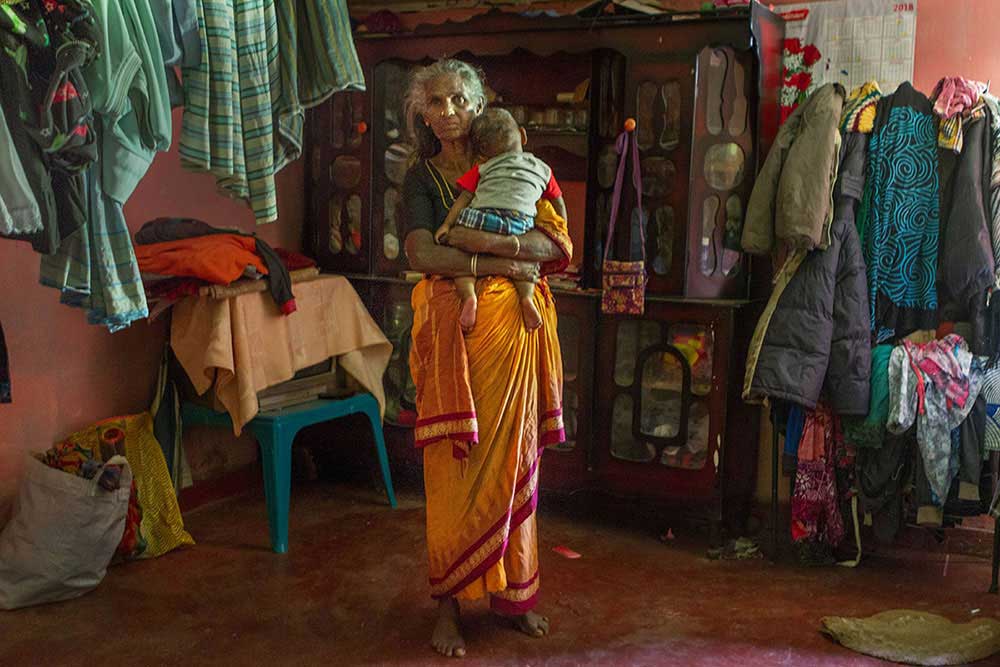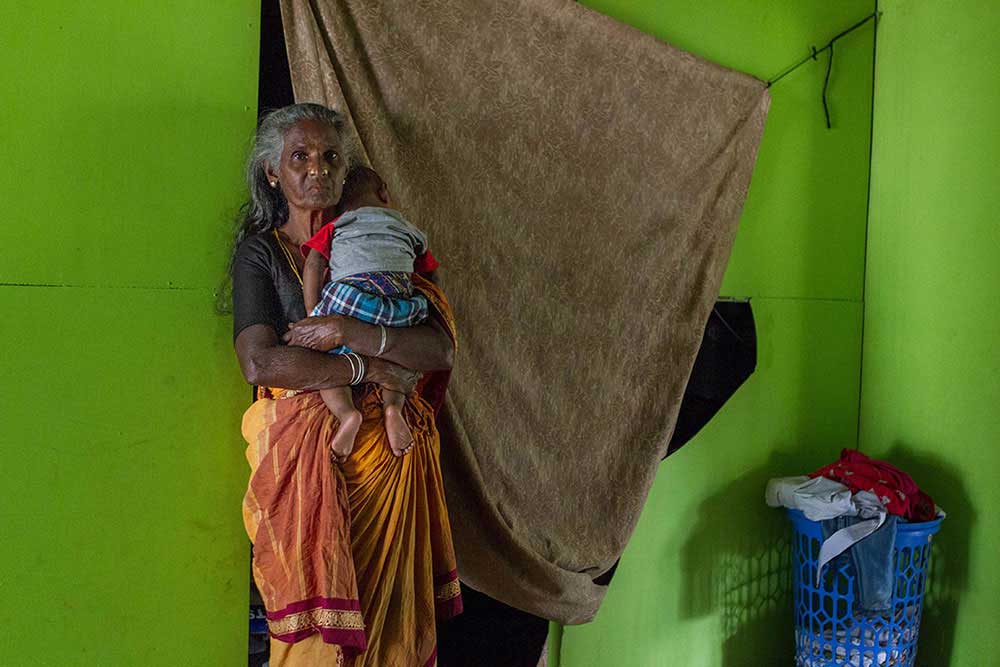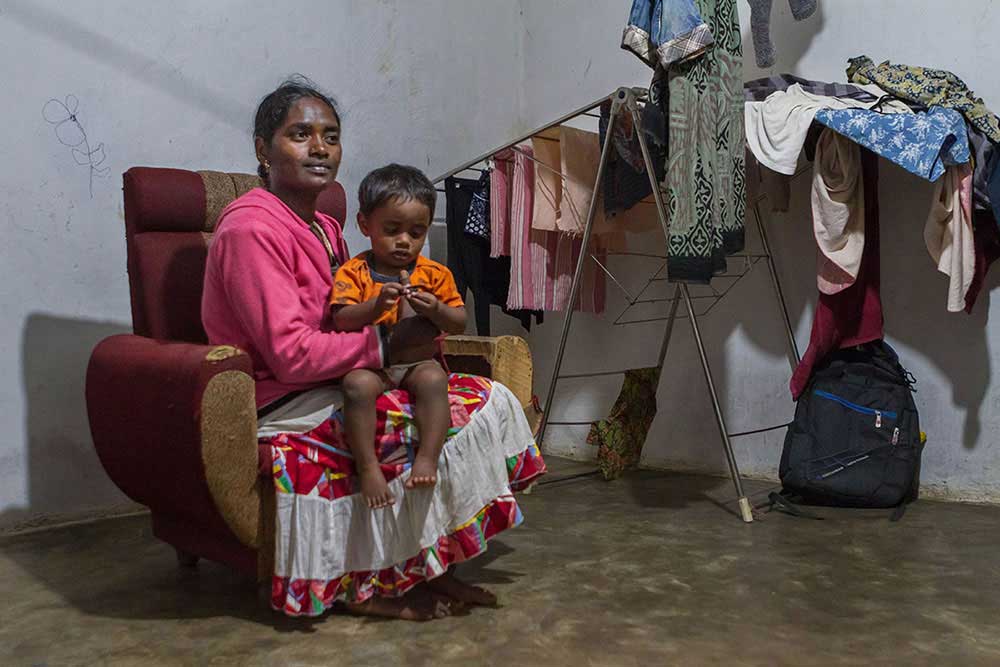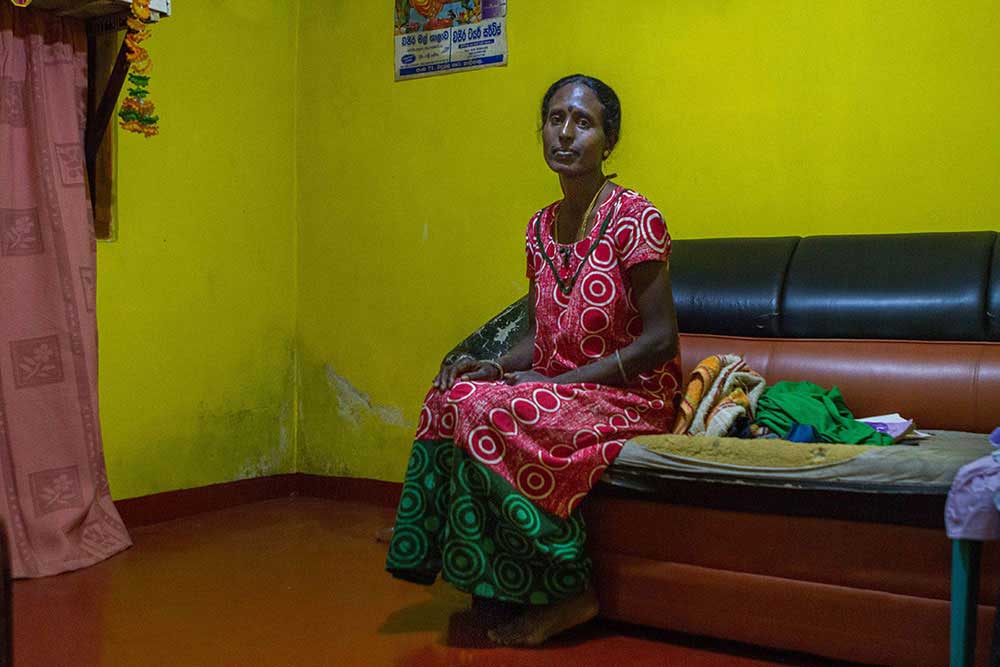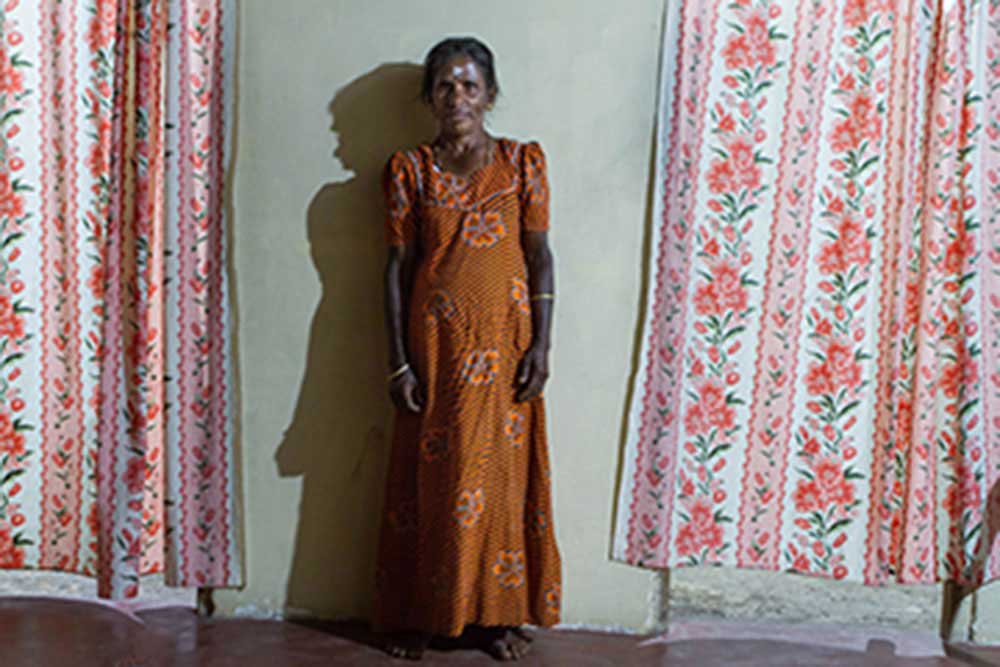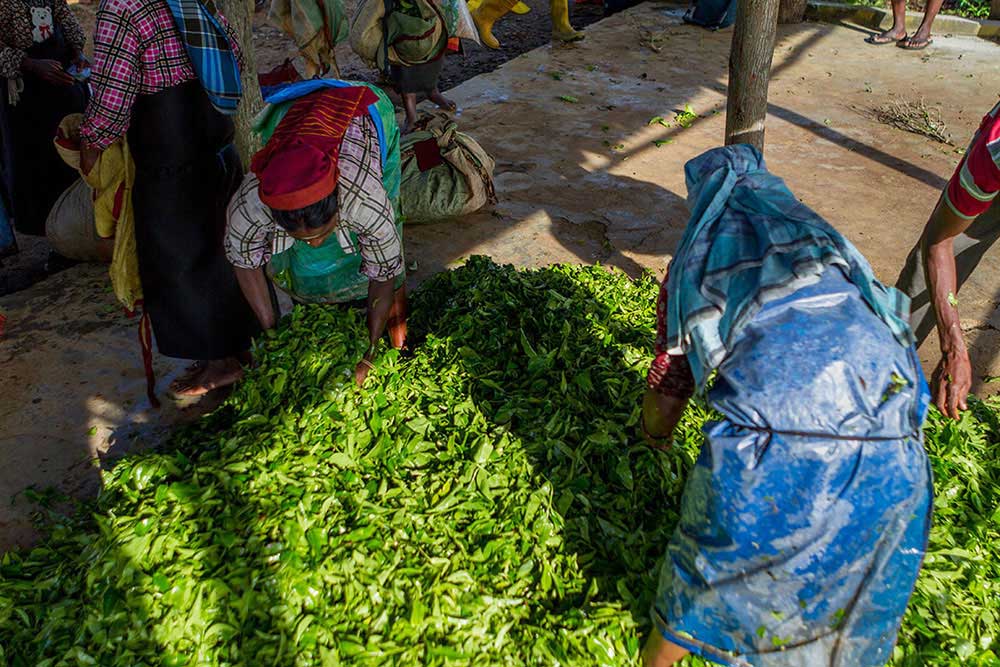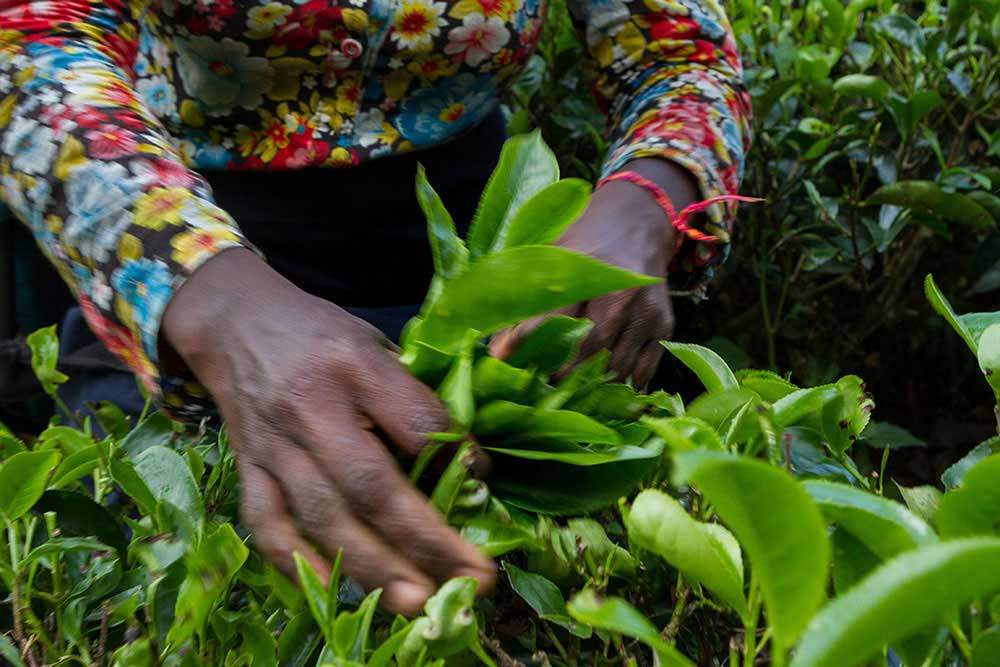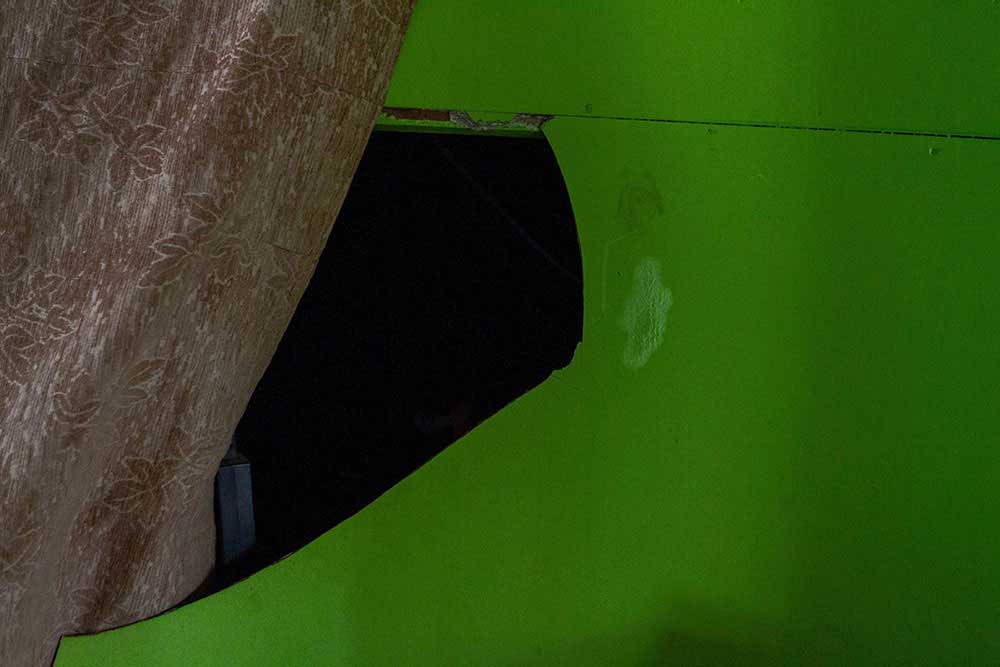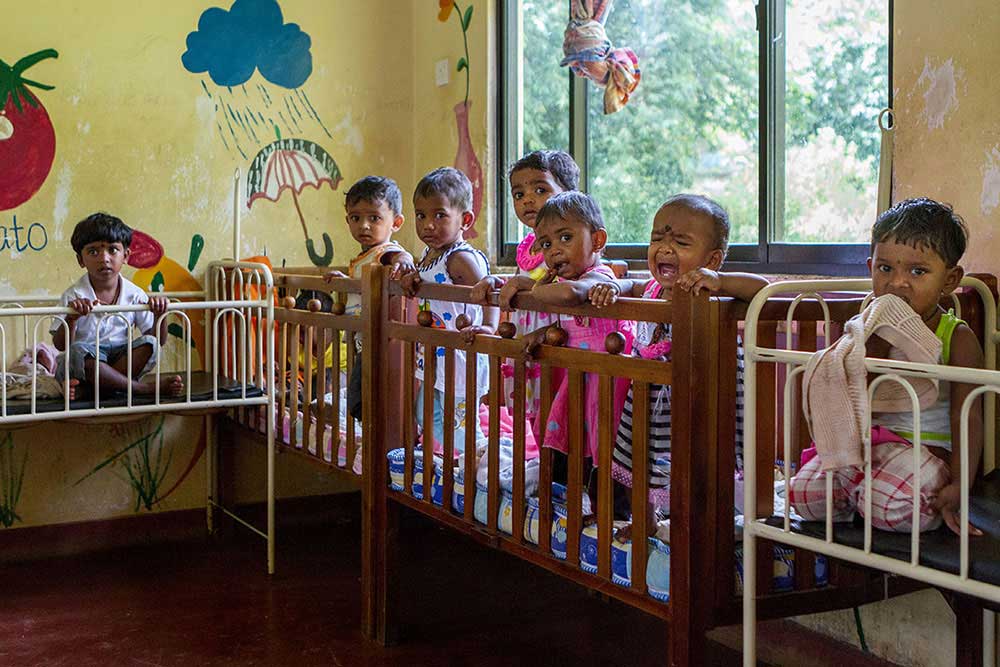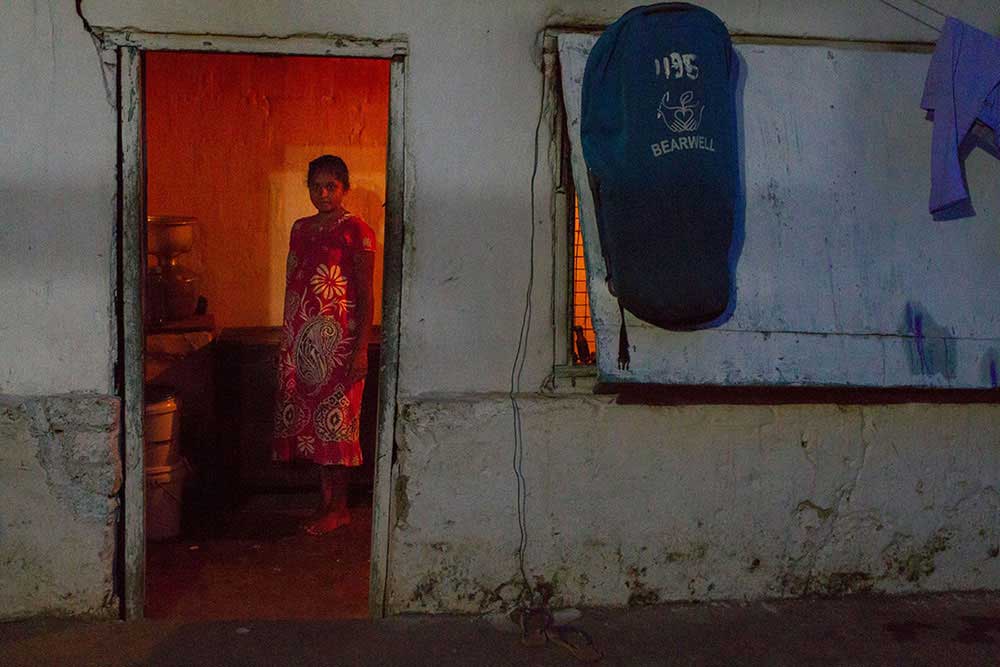In 1850-60s Britain brought Indian Tamils to Sri-Lanka as slaves. They had no citizenship till 1990s and some of them only got it in 2003. Owners of the plantation have been changing since then but the life of workers stayed the same.
Generations of women have worked as tea pickers. Women pick tea leafs quicker and more accurate. Every day they have to pick 18 kg of tea leafs. If they don’t reach this target their salary is reduced. Tea plantation workers earn 750 LKR ($4) per day. It is not even enough to feed three kids in your family.
They are the most vulnerable people on the island. Workers live in linen houses without a right to own it. All buildings and land belong to the company. They have no pension, sick or maternal leaves. A lot of women work till eighth month of pregnancy. After a delivery they can stay home three months for the first born and two for the next one.
This job causes a lot of health problems. Women often stop working because of unbearable backaches, their palms are wounded and it is easy to catch lice during the rain.
This series tells stories of the women who live and work in Lindla area, Talawakelle village. Despite all problems they still were talking about their job with love. When they were showing how to pick and sort tea leafs I have felt tenderness in their voices. [Official Website]
Shermila Devi (26 y. o.)
I started when I was 20. I was a bit clumsy when I was a teenager. But since the moment I have started working I lost the weight. It’s a good thing I guess.
Jalayami (58 y. o.)
I began working when I was 17. At the age of 45 I had to stop. I had suffered from back pain. My husband has died six months ago. My brother had died earlier. Now I live with my daughter and grandkids. It is easier for both of us. I help her with kids and her husband and she helps me. I gave up working too early and I don’t have savings.
Sitha Devi (26 y.o.)
My father has died when I was 14. It was only my mother and younger brother then. My mum got ill and I decided to go working as a housewife in rich family. I was cleaning, cooking and looked after their kid. I was lucky that this family was kind for me. When I was 18 my mum has arranged a marriage for me. Now I have a family with three kids. I am a bread winner in the family. But I can’t reach a minimum target so we have only around 8000 rupees ($45) per month.
Kala Rani (31 y. o.)
I have suffered a lot from domestic violence. My husband had been drinking. Once I have tried to burn myself. But I was rescued. A year ago he has died. I have stayed with three kids and numbers of health problems. Even soft sun light can hurt me. I can’t work the whole day and I have to look for job everywhere. The maximum I have earned is 6000 rupees ($35). My kids and I rarely have meals three times a day. We live in a small shelter. There is no electricity, doors or windows. We cook, eat and sleep in once place. I hope something will change in our life.
Mari Amma (67 y.o.)
I have worked from 17 till 51. I used to earn 3.50 rupees per day when I was young. All three my daughters work as tea pickers. They were so good at studying. But we couldn’t help them with higher education and they had to go on plantations. Now I have nine grandkids and I wish they would live differently.
Malarvili (34 y.o.)
My first son felt down in the nursery when he was less than year old. His head was bleeding. I couldn’t blame nurses. They have too many kids to look after. I had to leave all my three kids when they were only a few months old.
Malar (38 y.o.)
Husband and I couldn’t have kids for 10 years. Recently we have celebrated “Big Girl” date of my daughter. She is a young woman now. My husband doesn’t drink or smoke so we can save money for her education. All women from my family work on plantations. It would be difficult for my daughter. I want for her different life.
Maria (53 y.o.)
I have studied only till the 2nd grade in school. When I was 10 I went to work as a housewife. I have been working hard all my life. My parents had arranged my marriage. Now my daughter is studying. I could stop working years ago. But I will go on till my daughter will finish studying.
Note: With great help of Duminda Ahlakoon and Govintha Samy.



